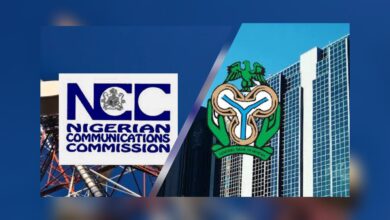FG Launches NASSE, Targets 500 Students, 30 Teachers As Pilot

The Federal Government has flagged off a National Adopted School for Smart Education (NASSE) programme to enhance learning across Nigeria, with the targeted 500 students and 30 teachers in Abuja.
The first school to benefit from the pilot scheme was the Junior Secondary School, Karshi, in Federal Capital Territory, Abuja.
Speaking during the launch of the (NASSE), the Minister of Communications and Digital Economy, Dr. Isa Pantami said, the digitalisation of every sector in Nigeria would accelerate the digital economy dream.
Pantami noted that Education as the backbone of a nation’s prosperity allows a country and individual to hold competitive edge in the ever-advancing technological world and reach their full potential.
He further stated that the purpose of education was to teach children to think intensively and critically.
“This can be more realistic if they are exposed to education at young ages. NASSE is a model of catching our young ones early enough into the world of technology in a more productive way particularly in the education sector”, he said.
The Minister explained that “the goal of education is not only to increase the amount of knowledge but to create the possibilities for a child to invent and discover, to create men who are capable of doing new things. It is the most powerful weapon we can use to change the world and Nigeria for better”.
He asserted that building a strong digital economy requires the integration of digital technologies and innovations in all sectors.
“As a country, we lost totally in the past industrial age. In this digital age, with the increased proliferation of new technologies and innovations, going digital in all sectors of the economy is the optimal route to attain Sustainable Development Goals (SDGs) for any government. There should be no doubt that digitization of the economy is one of the most critical issues of our time”, he said.
Also speaking, the Director General, National Information Technology Development Agency (NITDA), Kashifu Inuwa, explained that NASSE was an implementation of Nigeria Smart Initiative in the education sector, in collaboration with relevant stakeholders, as a policy directive of the Federal Ministry of Communications and Digital Economy led by Dr Isa Ali Ibrahim Pantami to aid implementation of National Digital Economy Policy and Strategy (NDEPS) for a digital Nigeria.

He said, as part of the agency strategic objectives, there was need to support every sector of the economy to succeed in this digital age.
Inuwa said, the NASSE was designed to accelerate the achievement of this global and national agenda by smartly engaging in “building and upgrading education facilities that are child, disability and gender sensitive with provision of safe, nonviolent, inclusive and effective learning environments for all. Hence the launch of the pilot edition of NASSE in partnership with AMAC and other critical stakeholders at Junior Secondary School, Karshi.
“We are deploying one of the indigenous cloud based digital education solutions that is based on National Educational Research Development Council (NERDC) curriculum to support over 500 students and 30 teachers for JSS 2 Karshi.
In addition to the above, NITDA is providing among others: digital literacy capacity building for over 500 students and teachers; Free Wireless Broadband (unlimited contents download and upload) for students and teachers; Portable renewable energy system; Smart education devices (Tablets); and Instructor’s android-enabled smart screen.
He reiterated that the aim was to promote massive access to quality education at the grassroots while leveraging digital technologies and innovations.
Speaking earlier, the founder Hot spot, and supplier of the free Wifi, Morenikeji Aniye said, Education is a key driver of National growth and prosperity, noting that the infusion of ICT’s further stimulates the upward trajectory of that growth.
Aniye while highlighting some of the benefits of ICT in Teaching and learning said, “it provides both Tutors and beneficiaries with 21st century skills such as critical thinking, innovation, problem solving and collaboration to name a few.
“With these tools – Connectivity, Computers and software applications, learning and teaching becomes limitless and expands in no small measure course offerings and engaging teaching methods”, he said.
He commended NITDA and the Federal Ministry of Communications & Digital Economy for the initiative adding that, “it is a laudable policy direction towards increasing the ICT Index of Nigeria which in turn has a positive and potent cascade effect on different aspects of socio-economic life of our dear Nation”.
The principal of the school represented by Maxwell Nosiri and the Emir of Karshi represented by Alhaji Ahmad Bukar, while expressing their appreciation, assured that the project would be sustained and protected for the benefit of the students and teachers.







